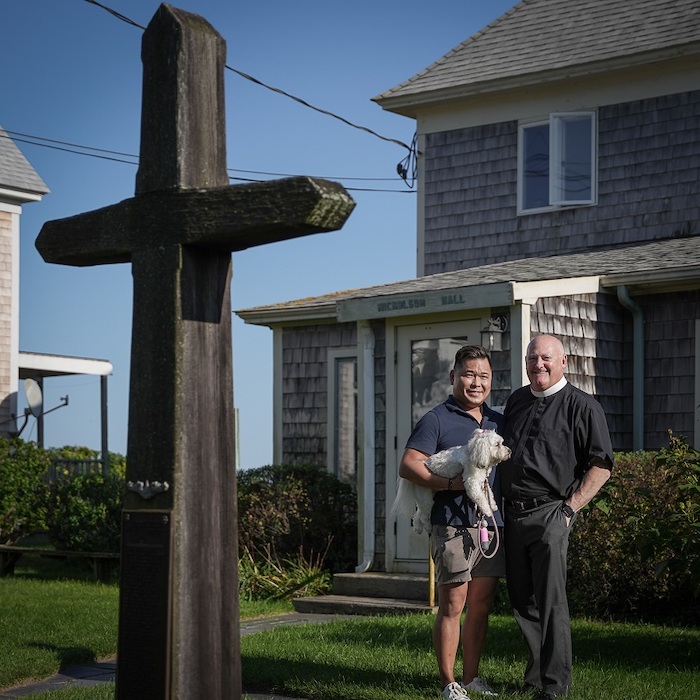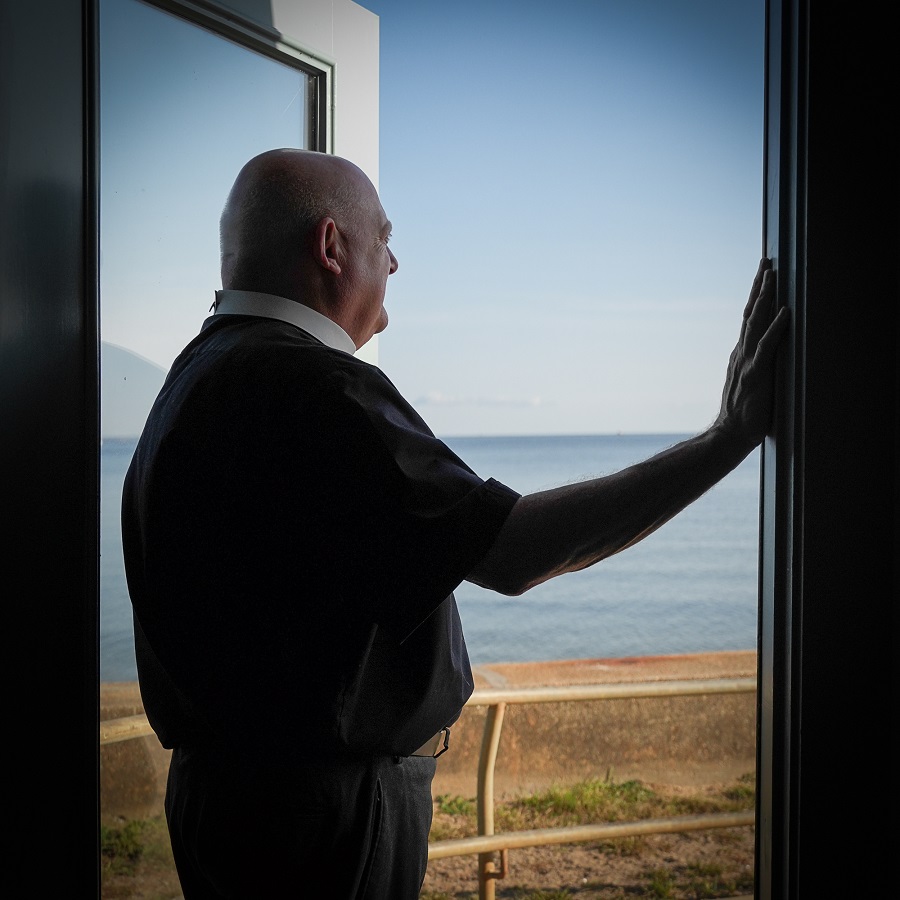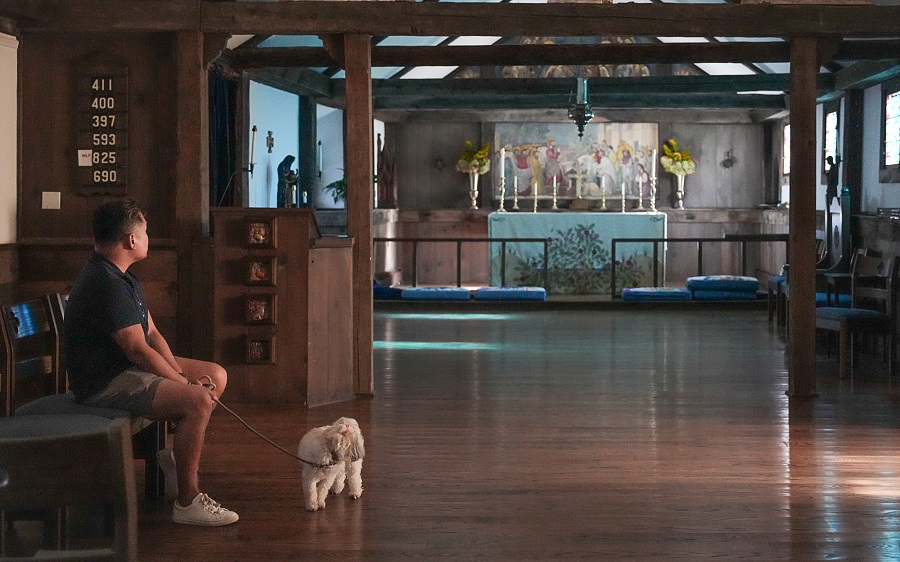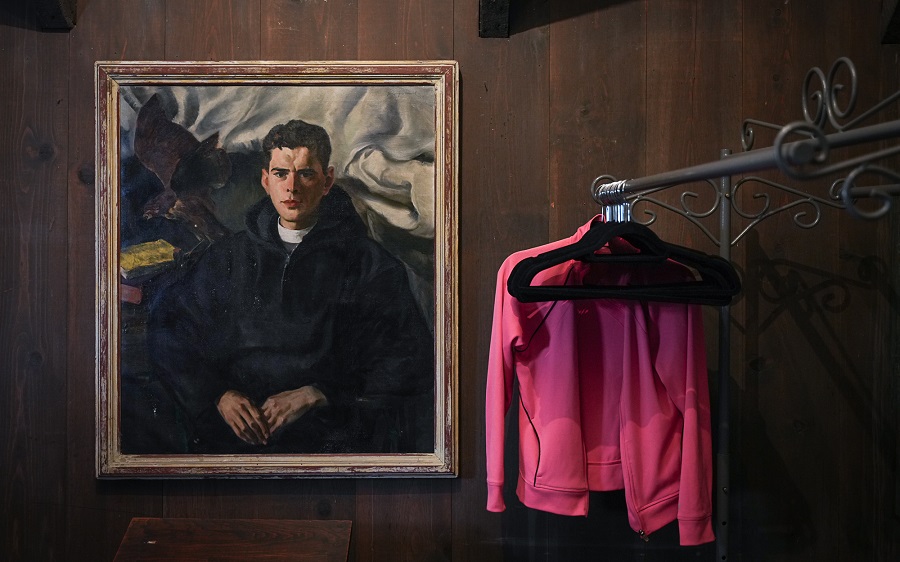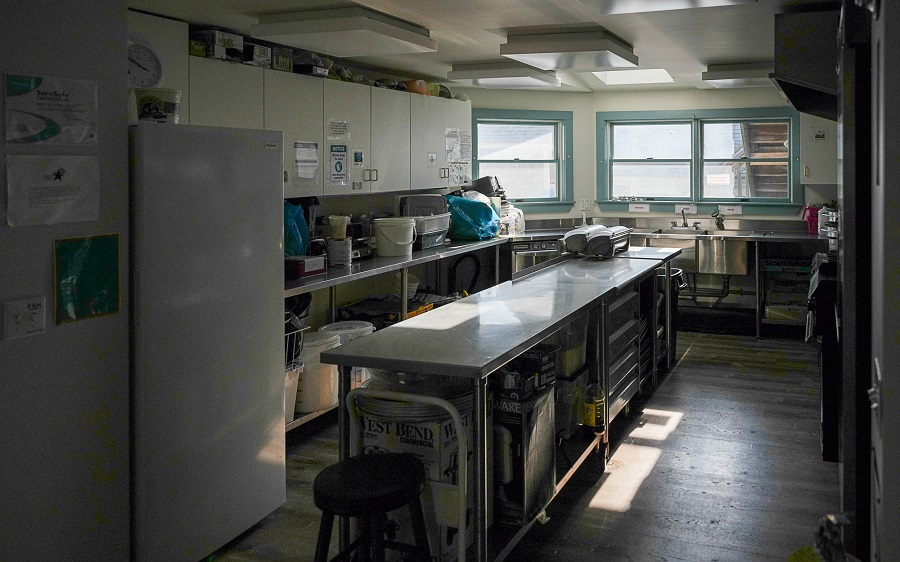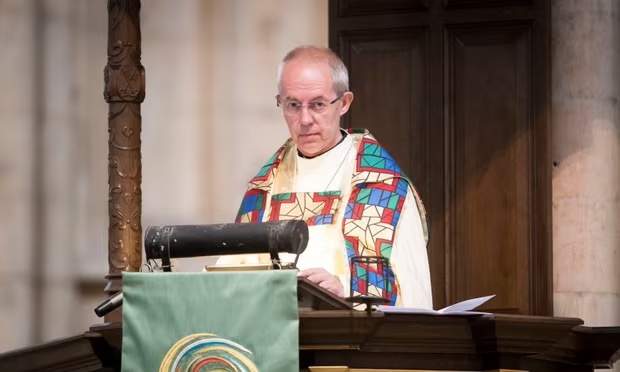— LGBTQ-inclusive spirituality books, part 1

by Brian Bromberger
At a time when evangelical/fundamentalist Christians are renewing their backlash against queer people, it’s imperative to remember there are other Christians appalled at this injustice and lack of compassion, who are supportive of their queer brethren, especially mainline Protestants and progressive Catholics.
Spurred on by the pandemic, these books mostly written by queer believers who want to supply succor and strength to those who have remained in the institutional church.
In this survey, many of these books are forming a nascent queer spirituality, which not only affirms LGBTQ people as loved by God and recognize the goodness and beauty of their experiences sexual and otherwise, but with spiritual practices helps them develop an existential well-being enabling them to weather oppression. We begin with Christianity, with other faiths in next week’s issue.
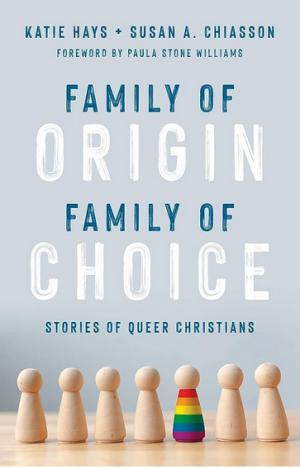
Called Out: 100 Devotions for LGBTQ Christians by E. Carrington Heath, $20 (Westminster John Knox Press)
Heath is a nonbinary Senior Pastor of the Congregational Church in Exeter, New Hampshire. These 3-5 minute devotions consist of a bible verse, a reflection, then a short prayer. Designed for progressive Christians, he covers topics such as coming out, relationships, chosen family, religious trauma, with such enticing titles as ‘Afraid of God?,’ ‘Alligators and Ice,’ ‘Open to Rearranging,’ ‘Compassion for the Bully,’ and ‘The Gifts of the Disagreeable.’ Perfect for a quick read right before you start your day for inspiration, strength, and fortification.
Queering Black Churches: Dismantling Heteronormativity in African American Congregations by Brandon Thomas Crowley, $29.95 (Oxford University Press)
Thomas, an African-American minister and a lecturer in Ministry Studies at Harvard Divinity School, provides an systematic approach for dismantling heteronormativity within African American congregations by first outlining a history of trans-and-homophobia in black congregations.
Then using the lenses of practical theology, queer theology and gender studies, he examines the theologies, morals, values, and structures of black churches and how their longstanding assumptions can be challenged. Drawing on the experiences of several historically Black churches that became open and affirming (United Methodist and Missionary Baptist examples) he explores how those churches have queered their congregations based on the lived experiences of Black Queer folks trying to subvert their puritannical ideologies.
Crowley wants to move beyond surface-level allyship toward actual structural renovation. At times theoretical, he winds up offering practical proposals for change that can be a valuable resource for students clergy, and congregants.
The Gospel of Inclusion, Revised Edition: A Christian Case for LGBT+ Inclusion in the Church by Brandan J. Robertson, $23 (Cascade Books)
An exercise in queer theology, Robertson is the Lead Pastor of an LGBTQ Missiongathering Christian Church in San Diego who makes a compelling case for queer inclusion based on an original contextualized reading of the six traditional passages referring to homosexuality in the Bible. He suggests that the entire thrust of the Christian gospel calls the church towards the deconstruction of all oppressive systems and structures and the creation of a world that celebrates the full spectrum of human diversity as honoring God’s creative intention.
Family of Origin, Family of Choice: Stories of Queer Christians by Katie Hays and Susan A. Chiasson, $21 (Wm. B. Eerdmans Publishing Co.)
A social scientist and a pastor asked their LGBTQ friends from church to help them understand how they navigate relationships with their affirming, non-affirming, and affirming-ish families of origin, even as they also find belonging in other families of choice. These are first-person personal stories and testimonies written by queer evangelical Christians as they come to terms with their sexuality and its impact on those closest to them. Useful for both cis-het and LGBTQ Christians who are interested in reconciliation and resiliency rather than walking away from the pain inflicted on them by the institutional church.
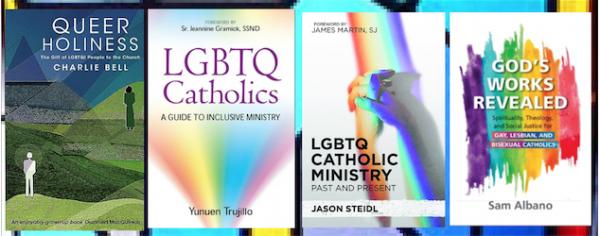
Queer Holiness: The Gift of LGBTQI People to the Church by Charlie Bell, $22 (Darton, Longman, and Todd)
Bell is a gay psychiatrist and ordained deacon in the Church of England. The book is a critique of that denomination’s treatment of queer Anglicans, but is also trying to develop a healthy LGBTQ spirituality that’s psychologically sound. Human experience, science, and reason are essential elements in developing a theology that celebrates God’s diversity in sexuality. “The Church has failed to provide good role models for LGBTQI people and we are wounding the body of Christ if we don’t repent and change our ways.” Bell is calling queer Christians to be prophets to the Church.
LGBTQ Catholics: A Guide To Inclusive Ministry by Yunuen Trujillo, $19.95 (Paulist Press)
Immigration attorney Trujillo has written a guidebook on how to start an inclusive LGBTQ ministry at your church, including the different types and levels, their purpose, their structures, the most common challenges, and best practices. She believes in a listening church and church of supporting people where they are, in whatever part of the journey they are in. She longs to see the day when queer Catholics will no longer need to ask, “Why stay?” LGBTQ Catholics are no longer invisible and dialogue has commenced. This seminal book focuses on Catholic parishes, but much of the guidelines would fit a church of any (or non) denomination.
LGBTQ Catholic Ministry: Past and Present by Jason Steidl Jack, $27.95 (Paulist Press)
A good companion book to Trujillo, Jack, who teaches religious studies at St. Joseph’s University in NY, provides a history of queer-friendly groups that have ministered to LGBTQ Catholics in the last 50 years, including Dignity (LGBT rights and the Catholic church), New Ways Ministry (support for queer priests and religious), Fortunate Families (straight allies/families), St. Paul the Apostle (a Paulist pro-LGBTQ parish in Manhattan), and Fr. James Martin, a Jesuit, whose ministry is trying to bridge the gap between the institutional church and the LGBTQ community. The book culminates in trying to create a new understanding of church that includes queer people and combats homo/transphobia.
God’s Works Revealed: Spirituality, Theology and Social Justice for Gay, Lesbian, and Bisexual Catholics by Sam Albano, 29.95 (Paulist Press)
Albano is the national secretary of DignityUSA and lays out well-argued theological arguments critiquing the Catholic Church’s treatment of Gay, Lesbian, and Bisexual Catholics as unjust and ignores their inherent dignity as God’s creation. He proposes a Catholic vision for same-sex marriage, a queer liberation theology, and an LGBTQI spirituality of suffering. He has some bold proposals but the schema is marred by its lack of inclusion of transgender Catholics, especially since he believes LGBTQI Catholics are called to be God’s friends in creating, loving, serving, and raising this world to new life.
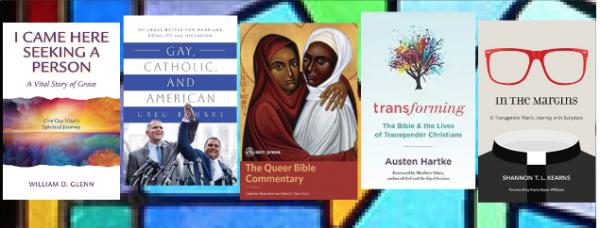
I Came Here Seeking A Person: A Vital Story of Grace, One Gay Man’s Spiritual Journey by William D. Glenn, $29.95 (Paulist Press)
Glenn, a SF Bay area transplant, who began as a devout Catholic boy joining and later leaving the Jesuits religious order. He progresses go AIDS counselor and then later President of the SF AIDS Foundation, clinical psychologist, spiritual director, chair of the Board of Trustees of the Graduate Theological Union in Berkeley, as well as with husband Scott Hafner, is the cofounder of its Center for LGBTQ and Gender Studies in Religion. The book highlights key moments illustrating the above milestones in his life.
The title comes from Trappist author Thomas Merton, “suggesting the human journey is a series of seekings, the encounters we have with ourselves, others, and the divine presence.” He writes that the book isn’t a classical memoir, but “a recounting of two dozen+ encounters I have experienced that changed the direction of my life both in almost imperceptible ways and in ways that were utterly transformative,” whether it be a book, a person, a dream, an intuition, or a prayer experience. It’s evocative rather than full of biographical details.
It’s an honest, warts and all account of Glenn’s spiritual journey often moving and inspiring, integrating all his milestones through both a Jungian psychological lens, but also an Ignatian (founder of the Jesuits) spirituality prism too. The best chapters are the ones about AIDS and how it impacted his life. Also, Paulist Press, a mainstream Catholic publisher, is to be commended for producing four queer religious books in the last year, atoning for their previous absence of titles through the decades.
Gay Catholic and American: My Legal Battle for Marriage Equality and Inclusion by Greg Bourke, $26.00 (University of Notre Dame Press)
Compelling and inspirational memoir about information technologist Bourke, who became an outspoken gay rights activist after being dismissed as a troop leader from the Boy Scouts of America in 2012 and his historic role as one of the named plaintiffs in the landmark U. S. Supreme Court decision Obergefell vs. Hodges, which legalized same-sex marriage nationwide in 2015. After being ousted by the Boy Scouts, he became a leader in the movement to amend antigay Boy Scouts membership policies.
The Archdiocese of Louisville, because of its vigorous opposition to marriage equality, blocked Bourke’s reutrn to leadership despite his impeccable long-term record as a distinguished boy scout leader. Bourke describes growing up in Louisville, Kentucky living as a gay Catholic. With his husband Michael De Leon he has been active in a Catholic Church for more than three decades, bringing up their two adopted children in the faith. Bourke proud to be gay and Catholic was tenacious enough to fight for inclusion, that they are not mutually exclusive. Heartwarming and deeply affecting with the inside story behind the historic Obergefell case.
The Queer Bible Commentary, 2nd Edition, edited by Mona West and Robert E. Shore-Goss, $112 (SCM Press)
First published over a decade ago, it has been newly revised including updated bibliographies and chapters with new voices taking into account the latest literature relating to queer interpretations of scripture. Contributors, both English and American, draw on feminist, queer, deconstructionist, utopian theories, the social sciences and historical-critical discourses. The focus is both how reading from lesbian, gay, bisexual and/or transgender perspectives affect the interpretation of biblical texts and how biblical texts have and do affect LGBTQ+ communities.
It’s scholarly but accessible to the educated reader with cutting-edge contributions exploring faith, gender, sexuality, bodies, activism, and queer rights. Probably definitive for now and yes very expensive, but it’s the type of book you will use continually whether it be for preaching, education, or your own spiritual enrichment. Extensive citations allows one to research topics and themes. Indispensable and monumental.
Transforming: The Bible and the Lives of Transgender Christians, Updated and Expanded Edition with Study Guide by Austen Hartke, $20 (Westminster John Knox Press) and Margins: A Transgender Man’s Journey with Scripture, $19.99 (Wm. Eerdman’s Publishing Co.)
Both these authors weave their personal trans experiences into reflections on well-known biblical stories, such as eunichs for Christ/Acts’ Ethiopian eunich, Jacob wrestling with God, sex worker Rahab and the Israelite spies, Ezekiel and the dry bones, the transfiguration of Jesus, and trans implications of the resurrection, not as a moment but a process. They reveal how these stories have helped shape their own identities. Both believe transgender Christians have unique and vital theological insights for the church, especially new ways to think about gender with clever chapter titles like “God Breaks the Rules to Get You In” and “The Best Disciples Are Eunuchs.”
They unpack the terminology, sociological studies, and theological perspectives that affect transgender Christians, contradicting the notion God makes mistakes. Hartke is the founder of Transmission Ministry Collective, an online community dedicated to the spiritual care, faith formation, and leadership potential of transgender/gender-expansive Christians.
He has an MA in Old Testament/Hebrew Bible Studies. Kearns is an ordained priest, playwright, and theologian, who has given popular TED talks. Both books provide scriptural ammunition against religious critics who attack trans people as defying God’s binary creation of man/woman, promoting a more diverse, expansive view of the divine. “We know what it is to not fit in, to have to fight for a place for ourselves in the world and in the church.”
Help keep the Bay Area Reporter going in these tough times. To support local, independent, LGBTQ journalism, consider becoming a BAR member.
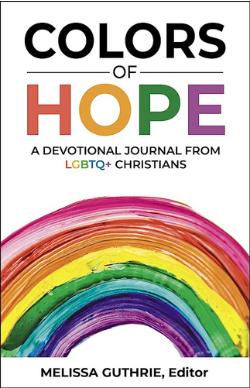
Colors of Hope: A Devotional Journal from LGBTQ+ Christians, edited by Melissa Guthrie, $16.99 (Chalice Press)
Inspired by the colors of the original Pride flag, the book explores the themes of sexuality, life, healing, sunlight, nature, art and magic, harmony and serenity, and spirit matched with a color encompassing a weekly scriptural reading and a daily reflection or activity that reminds readers we are all children of God.
Then each section has faith sharing questions, making this book ideal for prayer, Bible, meditation, and recovery groups plus the wider non-LGBTQ church, since the whole project is inclusive and the broadest spirituality imaginable. Each of the contributors are part of Alliance Q, the queer affirming ministry of the Disciples of Christ (a very progressive Protestant denomination). “What color is hope? Hoping in color brings the joy, beauty, and power of the rainbow to life.” Hope is presented here as an embodiment of all faiths and an act of resistance.
Complete Article ↪HERE↩!


